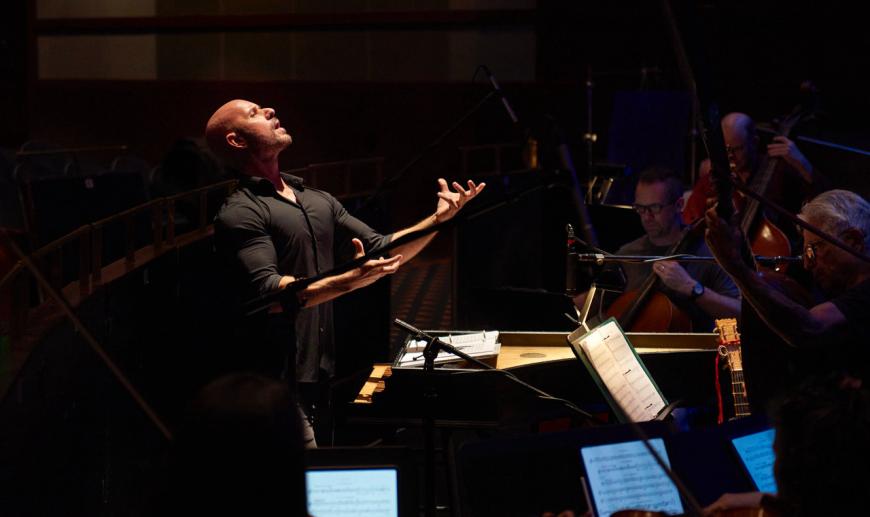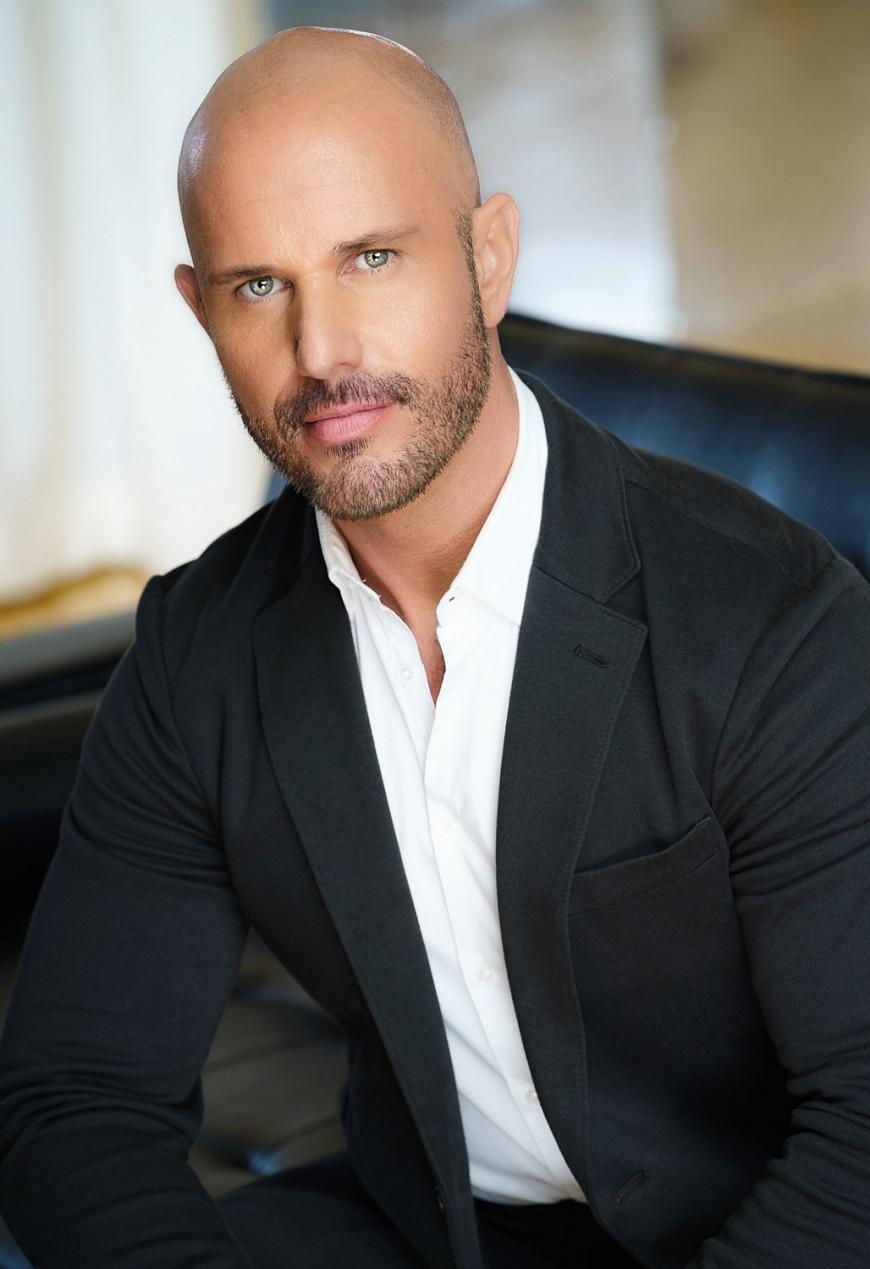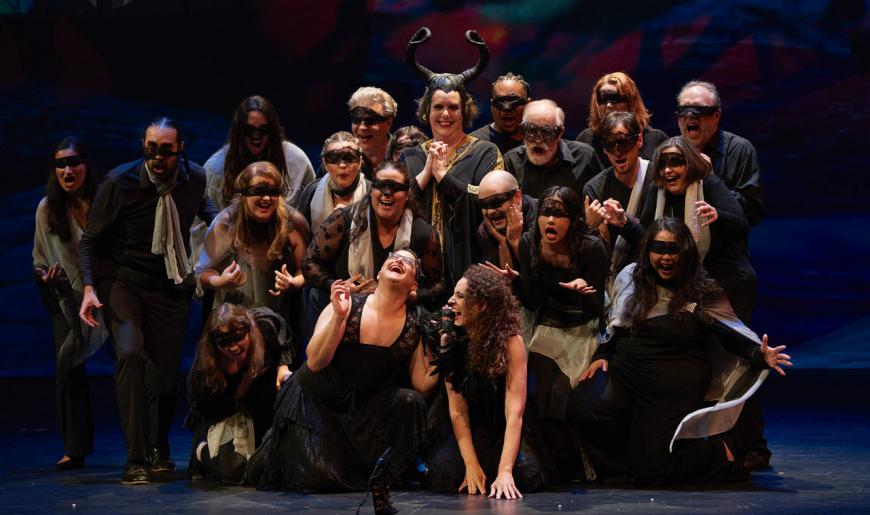
Zachary Gordin’s greatest wish is to present “the magic of opera,” but right now, his priority is “community engagement.”
Facing many challenges, the general director of Festival Opera is both determined and optimistic about his company’s future. The present issues he’s dealing with partly reflect the general crisis currently affecting all opera companies, even such major ones as San Francisco Opera and the Metropolitan Opera.
But in addition to the problems created by the pandemic and the subsequent loss of audience members and contributors, Festival Opera has had its own crises.
In 2021, while COVID was still turning everything upside down, conductor Michael Morgan died; among other roles, he served for many years as Festival Opera’s artistic director and “beating heart.” Gordin says, “I had my first [onstage] role with the company in 2006 and was a very close collaborator with Michael Morgan — whom I count as one of my dear mentors. He was the one who suggested I get involved in Festival Opera’s leadership ... and I became artistic director in 2018.” Gordin assumed the title of general director in 2020, a year well remembered — and not just in musical circles.
Organizational and fiscal problems at Festival Opera began well before then, however, including what Gordin describes as the departure of a key official “in a cloud of smoke.”

This writer remembers a few years back being among the often surprised and delighted audience members applauding memorable productions from the brave little company. Its home venue, often filled to capacity, was the Hofmann Theatre at the Lesher Center for the Arts in Walnut Creek (to which the company has since returned).
When Gordin took over, he found “the formerly loyal audience dismantled, to the point that there was a near-empty theater for a performance of Ariadne auf Naxos,” he says.
With an operating budget around $250,000 and uncertain attendance numbers, Festival Opera could no longer afford the Hofmann Theatre, whose rental fees can be as high as $20,000 for a week of in-theater rehearsals, technical preparations, and two performances.
On the other hand, part of the reason for the “dismantled” audience, according to Gordin, was a former general director changing venues to save on rental fees.
Given the situation, “we needed to engage, to build audiences,” Gordin remembers. “If they don’t come to you, you go to them in parks, schools, with concerts and recitals. But in the long range, a return to staged productions in a theater is a must [in order for audiences] to experience the magic of opera.”
Like any small company, Festival Opera has had its ups and downs. Theodore Weis, a baritone and nephrologist and previously founder of Arizona Opera, established the Walnut Creek company in 1991. Under the leadership of Jim Sullivan, Olivia Stapp, and (for 12 years) Morgan, Festival Opera progressed to successful fully staged productions, receiving critical acclaim in the process.
The company has provided emerging musicians, designers, and directors with employment and an outlet for artistic expression and launched the careers of several singers who now perform at SF Opera and the Met — tenors David Miller and Brandon Jovanovich among them.
To rise again from the recent setbacks, Gordin means to rebrand Festival Opera — not its name but its ways of attracting audiences, drawing on not only his artistic background as a singer, director, and producer but also entrepreneurial skills he learned running Vox International Artists, a management company representing mostly West Coast opera performers.

Festival Opera’s 2024 season did begin in the Hofmann Theatre in July with a double bill of Francis Poulenc’s La voix humaine (with soprano Carrie Hennessey) and Henry Purcell’s Dido and Aeneas (with mezzo-soprano Kindra Scharich and bass-baritone Matthew Lovell in the title roles). Gordin conducted the Festival Opera Orchestra and Chorus and played the harpsichord for the Purcell; Céline Ricci was the stage director, and members of Diablo Ballet participated.
This season’s recitals and community events began with Opera in the Park in Orinda and Walnut Creek in June. Festival Opera will next offer a recital series at Piedmont Center for the Arts, beginning on Sept. 22 with Scharich, and pianist Jeffrey LaDeur.
Their recital, titled “Lucky in Love,” will consist of songs by Gabriel Fauré and “other beloved scores that explore l’amour.”
Contralto Sara Couden and pianist Derek Tam will then present a Halloween-themed recital of classic and contemporary art songs on Oct. 27.
The series will conclude on Nov. 17 with Gordin’s “Muses and Musings of an Impresario,” accompanied by pianist Daniel Lockert and featuring guest artists to be announced.




